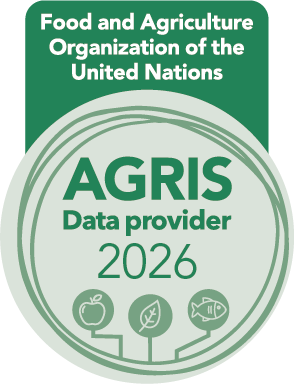Association between Academic Stress and Eating Patterns among University Students
Association between Academic Stress and Eating Patterns
DOI:
https://doi.org/10.54393/df.v4i02.74Keywords:
Academic Stress, Examinations, Eating Habits, Eating Patterns, BreakfastAbstract
The enhanced prevalence of symptoms of anxiety, stress and depression among university students is of great concern. Stress and lack of time due to studies puts students’ health and wellbeing at risk and the most concerning factor is how their eating patterns are being affected. Objective: To assess eating patterns and compare its association with stress among university students. Methods: A cross-sectional study was conducted in different universities of Lahore from September 2022 to December 2022. Data had been collected from 100 students by using non-probability convenient sampling, with the help of a self-constructed questionnaire. Results: Almost 70% students reported that they have one meal a day while most 2% students had 2 meals a day and 28% students had 3 meals a day under academic stress (p-value = 0.031). Approximately 61% students were having late night meals more than 2 times a week under educational pressure (p-value = 0.028). Around 68% students were missing their breakfast more than 2 times a week while worrying about the examinations (p-value = 0.03). Nearly 59% students were forgetting to take proper meals due to stress of exams preparation (p-value = 0.037). Almost 43% students were caffeine dependent due to academic stress. Conclusions: There is a significant link found between change in eating patterns due to the academic stress and pressure among university students.
References
REFERENCES
Fink G. Stress, definitions, mechanisms, and effects outlined: Lessons from anxiety. InStress: Concepts, cognition, emotion, and behavior. Academic Press. 2016 Jan; 1: 3-11. doi: 10.1016/B978-0-12-800951-2.00001-7.
Bedewy D and Gabriel A. Examining perceptions of academic stress and its sources among university students: The Perception of Academic Stress Scale. Health Psychology Open. 2015 Jul; 2(2): doi: 10.1177/2055102915596714.
Wahed WY and Hassan SK. Prevalence and associated factors of stress, anxiety and depression among medical Fayoum University students. Alexandria Journal of Medicine. 2017 Apr; 53(1): 77-84. doi: 10.1016/j.ajme.2016.01.005.
Kumaraswamy N. Academic stress, anxiety and depression among college students: A brief review. International Review of Social Sciences and Humanities. 2013 Oct; 5(1): 135-43.
Rachim HB, Akbar MFR., Fuad ALBA, Rizki A. The relationship between academic stress and eating behavior among college students. International Proceeding Asean Youth Conference. 2019 March: 759-768. doi: 10.5281/zenodo.2582337.
Wichianson JR, Bughi SA, Unger JB, Spruijt‐Metz D, Nguyen‐Rodriguez ST. Perceived stress, coping and night‐eating in college students. Stress and Health: Journal of the International Society for the Investigation of Stress. 2009 Aug; 25(3): 235-40. doi: 10.1002/smi.1242.
McNaughton SA. Dietary patterns. InPresent knowledge in nutrition. Academic Press. 2020 Jan; 2: 235-248. doi: 10.1016/B978-0-12-818460-8.00013-7.
Sharma DK. Physiology of stress and its management. Journal of Medical Internet Research. 2018 Sep; 1(1): 1-5. doi: 10.24966/MSR-5657/100001.
Kim Y, Yang HY, Kim AJ, Lim Y. Academic stress levels were positively associated with sweet food consumption among Korean high-school students. Nutrition. 2013 Jan; 29(1): 213-8. doi: 10.1016/j.nut.2012.08.005.
Björntorp P. Do stress reactions cause abdominal obesity and comorbidities? Obesity Reviews. 2001 May; 2(2): 73-86. doi: 10.1046/j.1467-789x.2001.00027.x.
Trigueros R, Padilla AM, Aguilar-Parra JM, Rocamora P, Morales-Gázquez MJ, López-Liria R. The influence of emotional intelligence on resilience, test anxiety, academic stress and the Mediterranean diet. A study with university students. International Journal of Environmental
Research and Public Health. 2020 Mar; 17(6): 2071. doi: 10.3390/ijerph17062071.
LaMarre A and Rice C. Normal eating is counter‐cultural: embodied experiences of eating disorder recovery. Journal of Community & Applied Social Psychology. 2016 Mar; 26(2): 136-49. doi: 10.1002/casp.2240.
Rebuffe-Scrive M, Walsh UA, McEwen B, Rodin J. Effect of chronic stress and exogenous glucocorticoids on regional fat distribution and metabolism. Physiology & behavior. 1992 Sep; 52(3): 583-90. doi: 10.1016/0031-9384(92)90351-2.
AlJaber MI, Alwehaibi AI, Algaeed HA, Arafah AM, Binsebayel OA. Effect of academic stressors on eating habits among medical students in Riyadh, Saudi Arabia. Journal of Family Medicine and Primary Care. 2019 Feb; 8(2): 390. doi: 10.4103/jfmpc.jfmpc_455_18.
Caso D, Miriam C, Rosa F, Mark C. Unhealthy eating and academic stress: The moderating effect of eating style and BMI. Health Psychology Open. 2020 Nov; 7(2). doi: 10.1177/2055102920975274.
Ackuaku-Dogbe EM and Abaidoo B. Breakfast eating habits among medical students. Ghana Medical Journal. 2014 Aug; 48(2): 66-70. doi: 10.4314/gmj.v48i2.2.
Ramadhani N and Mahmudiono T. Academic stress is associated with emotional eating behavior among adolescent. Media Gizi Indonesia. 2021 Jan; 16(1): 38-47.
Choi J. Impact of stress levels on eating behaviors among college students. Nutrients. 2020 Apr; 12(5): 1241. doi: 10.3390/nu12051241.
Sogari G, Velez-Argumedo C, Gómez MI, Mora C. College students and eating habits: A study using an ecological model for healthy behavior. Nutrients. 2018 Nov; 10(12): 1823. doi: 10.3390/nu10121823.
Al-Shagawi MA, Ahmad R, Naqvi AA, Ahmad N. Determinants of academic stress and stress-related selfmedication practice among undergraduate male pharmacy and medical students of a tertiary educational institution in Saudi Arabia. Tropical Journal of Pharmaceutical Research. 2017 Nov; 16(12): 2997-3003. doi: 10.4314/tjpr.v16i12.26.
Downloads
Published
Issue
Section
License
Copyright (c) 2023 DIET FACTOR (Journal of Nutritional & Food Sciences)

This work is licensed under a Creative Commons Attribution 4.0 International License.
This is an open-access journal and all the published articles / items are distributed under the terms of the Creative Commons Attribution License, which permits unrestricted use, distribution, and reproduction in any medium, provided the original author and source are credited. For comments









